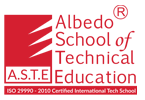When it involves on the internet gaming, ease and safety are two variables that gamers…
The Rise of Student-Driven Encyclopedias: Transforming Knowing Landscapes
In the ever-evolving realm of education, where details moves generously and accessibility to understanding is only a click away, student-driven encyclopedias are emerging as a dynamic tool in the discovering process.

These systems not only supply students with a repository of details yet also encourage them to add, modify, and curate content, cultivating a joint and interactive discovering setting.
As educational paradigms shift in the direction of even more participatory and inclusive designs, the idea of student-driven encyclopedias embodies this improvement. These platforms empower pupils to become energetic individuals in knowledge creation, bridging the void in between standard book understanding and contemporary digital resources.
The Concept of Student-Driven Encyclopedias
Student-driven encyclopedias are digital platforms where pupils jointly collect, confirm, and share information on a wide variety of topics. Unlike standard encyclopedias, which are usually created by experts, these systems take advantage of the joint initiatives of pupils to develop a thorough body of knowledge.

At their core, student-driven encyclopedias are created to grow essential thinking, research skills, and digital literacy amongst students. By participating in the process of material development, trainees learn to navigate and review info seriously, abilities that are important in today’s information-rich culture.
Furthermore, these systems function as an area for trainees to discover their interests and share their competence. This democratic strategy to understanding creation makes sure that a varied variety of viewpoints student learning support and voices are stood for, enriching the learning experience for all individuals.
- Pupils acquire hands-on experience in study and content production.
- Encourages partnership and peer communication.
- Advertises a much deeper understanding of topic.
- Fosters inclusivity and variety in understanding representation.
Fundamentally, student-driven encyclopedias change pupils from passive receivers of details right into energetic contributors, instilling a sense of ownership and obligation in their instructional journey.
Advantages of Student-Driven Encyclopedias
Among the primary advantages of student-driven encyclopedias is the growth of vital 21st-century abilities. As trainees take part in the process of material development, they hone their vital reasoning, electronic literacy, and interaction abilities, every one of which are critical in today’s interconnected globe.
Additionally, these systems encourage a collective knowing atmosphere, where students can interact to validate information, argument different point of views, and co-edit articles. This peer-to-peer interaction not just boosts finding out outcomes but additionally cultivates a feeling of neighborhood and shared respect amongst pupils.
Additionally, student-driven encyclopedias offer a system for showcasing student work. As students add to the encyclopedia, they construct a portfolio of their research study and writing, which can be invaluable for additional scholastic and professional pursuits.
Difficulties and Limitations

Regardless of the many advantages, student-driven encyclopedias likewise deal with certain obstacles. Making sure the precision and integrity of information is paramount, as these systems rely upon contributions from trainees who may not yet have expert-level knowledge.
- Maintaining material top quality and accuracy.
- Providing appropriate supervision and support.
- Making sure fair gain access to and inclusivity.
To reduce these challenges, numerous student-driven encyclopedias carry out a system of checks and balances, where material is reviewed by educators or experts before magazine. This makes sure that the information provided is both exact and reliable, maintaining the honesty of the platform.
The Future of Student-Driven Encyclopedias
As technology continues to development and the landscape of education advances, the potential for student-driven encyclopedias is substantial. These platforms have the capability to not just enhance traditional educational resources but additionally redefine the means knowledge is acquired and shared.
In the future, we could see student-driven encyclopedias integrating more advanced modern technologies such as expert system and machine learning to improve content curation and customization. In addition, they may increase past textual details to include multimedia material, providing an extra immersive learning experience.
Equipping the Next Generation
Student-driven encyclopedias hold the pledge of equipping the future generation of learners. By placing pupils at the helm of understanding development, these systems urge long-lasting discovering, interest, and intellectual freedom.
In conclusion, as instructional systems continue to innovate, student-driven encyclopedias stand as a testimony to the power of partnership and the relevance of student agency in the knowing process. By embracing these platforms, we unlock to a much more comprehensive, engaging, and vibrant instructional experience for all.
